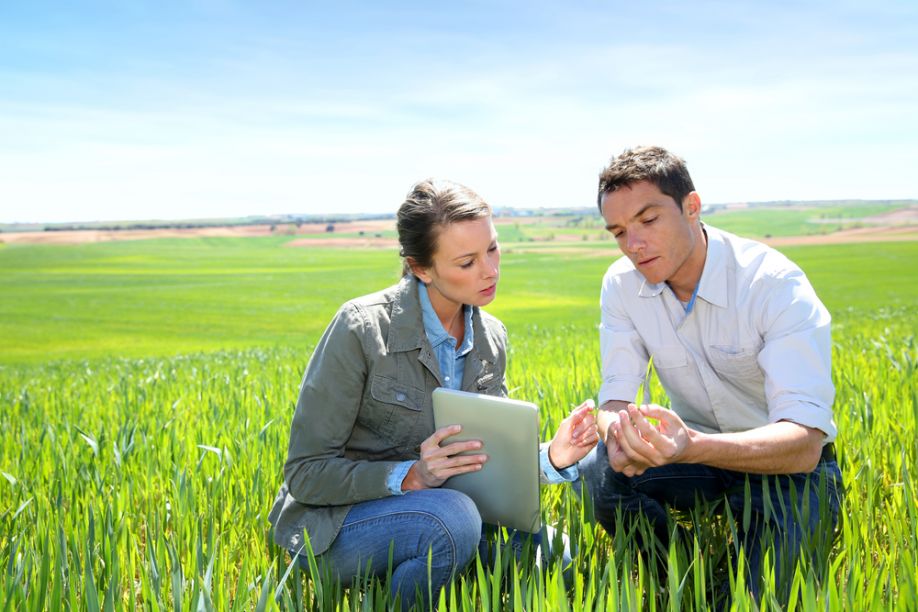How Big Data Can Manage Smart Farming

Data has applications in a variety of unexpected disciplines and agriculture is no different; you don’t expect to apply statistics and values to growing carrots. The concept is relatively new, having only begun to affect farming practices in the last decade, but the impact gathering and utilising data can have on crop management is beneficial and irrefutable. In addition, automated heavy machinery - managed and carefully monitored through GPS technology and remote, cellular control - allows precise control of the farm with less manpower than in the past.
The opportunities of big data that agriculture cannot omit
Farming has never been an exact science. Nature is unpredictable and oftentimes unforgiving. Even the slightest changes to weather patterns and temperature can decimate whole fields if they’re not harvested in time. “Veteran farmers can be blindsided by a poor forecast or late cold snap in spring, while inefficient management or planning of planting can lead to overcrowded crops, poor harvests and loss of revenue. Big Data can improve farming efficiency, reduce food waste, maintain interest in the industry and attract fresh investments” says Elta Corwin, a business writer at 1 Day 2 Write and Origin writings.
Smart Farming and the role of Big Data
Also a relatively new concept, Smart Farming is the application of sensory technology, predictive programs and statistical analysis of this data to determine the most beneficial course of action for a farmer and his crops. There are a variety of applications of Big Data in farming alone, from planting all the way to the harvesting process, maximising output and profit without sacrificing the care and dedication required to keep the product suitable for sale.
How data technology revolutionizes agriculture
Big Data can be used to safeguard against such catastrophe by monitoring data collected from farm equipment itself, combining it with human observation, externally-sourced data and using statistical analysis to make predictions assists in making difficult decisions. Using GPS and sensory equipment, smart machines can detect areas that require treatment or extra care and target them quickly and easily, improving the quality of crops and overall yield.
Precision Farming
As the name suggests, Precision Farming allows closer monitoring and care of a farmer’s plants or livestock. Sensors and analytical programs allow decisions to be made in regard to a single plant or animal, instead of an entire field. Farmers adding precise measurements or other variables and factors to the software also increases its efficacy; monitoring the benefits of particular fertilizers, pesticides and management methods creates better practices in the future, producing new schedules and processes that better manage the health of crops.
Apt Crop Forecasts
Drawing on weather pattern data from decades of records and combining it with current analytics, farmers can now predict their yield and quality almost flawlessly. Big data takes the guesswork out of farming, allowing the farmer to make more educated decisions regarding financial burdens, what should be planted and the best time to harvest the crops, all while automated to take the strain out of calculating the data.
Operation and Equipment Management
Keeping machinery maintained and working is important. Reducing downtime, keeping oil and fuel levels up and swiftly repairing issues can be difficult to manage, but Smart Farming allows farmers to install sensors in a fleet and manage them remotely. “These sensors record when a machine is active and for how long, alert the farmer of malfunctions and allow them to monitor activity remotely through GPS; equipment management has never been as easy or as effective” says Emie Gusikowski, a tech writer at Write my X and Brit student.
Food Safety and Spoilage Prevention
Big Data allows machinery to harvest crops with carefully placed set blades, lowering wasted produce from crop damage. The aforementioned precise management of plants also keeps crops as healthy and fit for consumption as possible. Each plant can be monitored at an individual level, reducing the number of crops ruined by infestation, dehydration or neglect.
Conclusions
Reducing manpower, operational costs and food waste are priorities in the farming industry. Not only does Smart Farming allow intimate control of crop growth and management, Big Data gives crucial insights into the overview of the farm, is easy to access, assists the management of the machinery fleet and facilitates a smoother farm operation through information both already available and carefully collated through smart sensors.
An e-learning consultant for Thesis writing service and Next Coursework, Regina Wheeler is involved in many projects, discussing and writing on management, marketing and finances. More articles by Regina Wheeler can be found on Write my assignment.
Comments (0)
This post does not have any comments. Be the first to leave a comment below.
Featured Product

